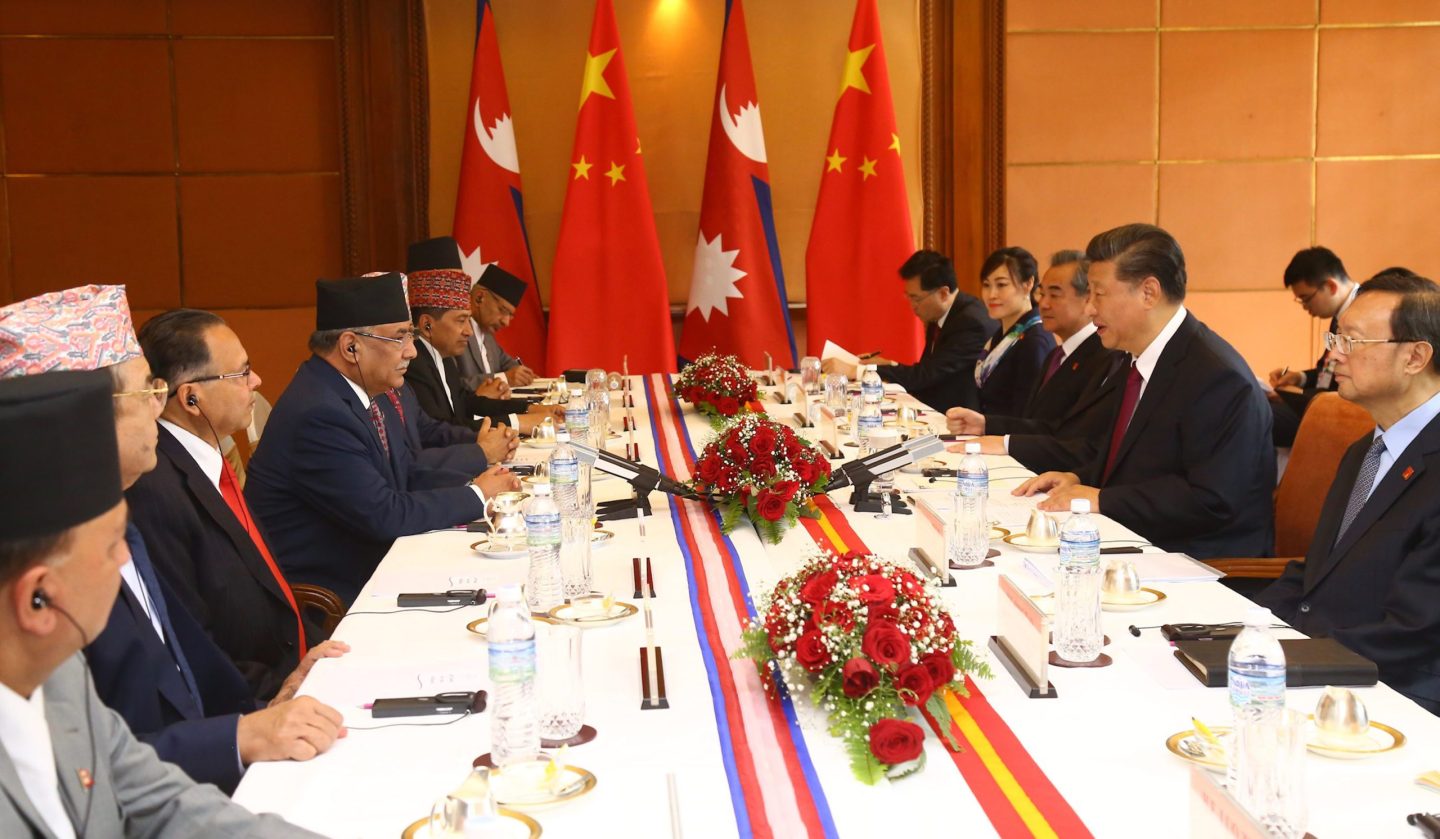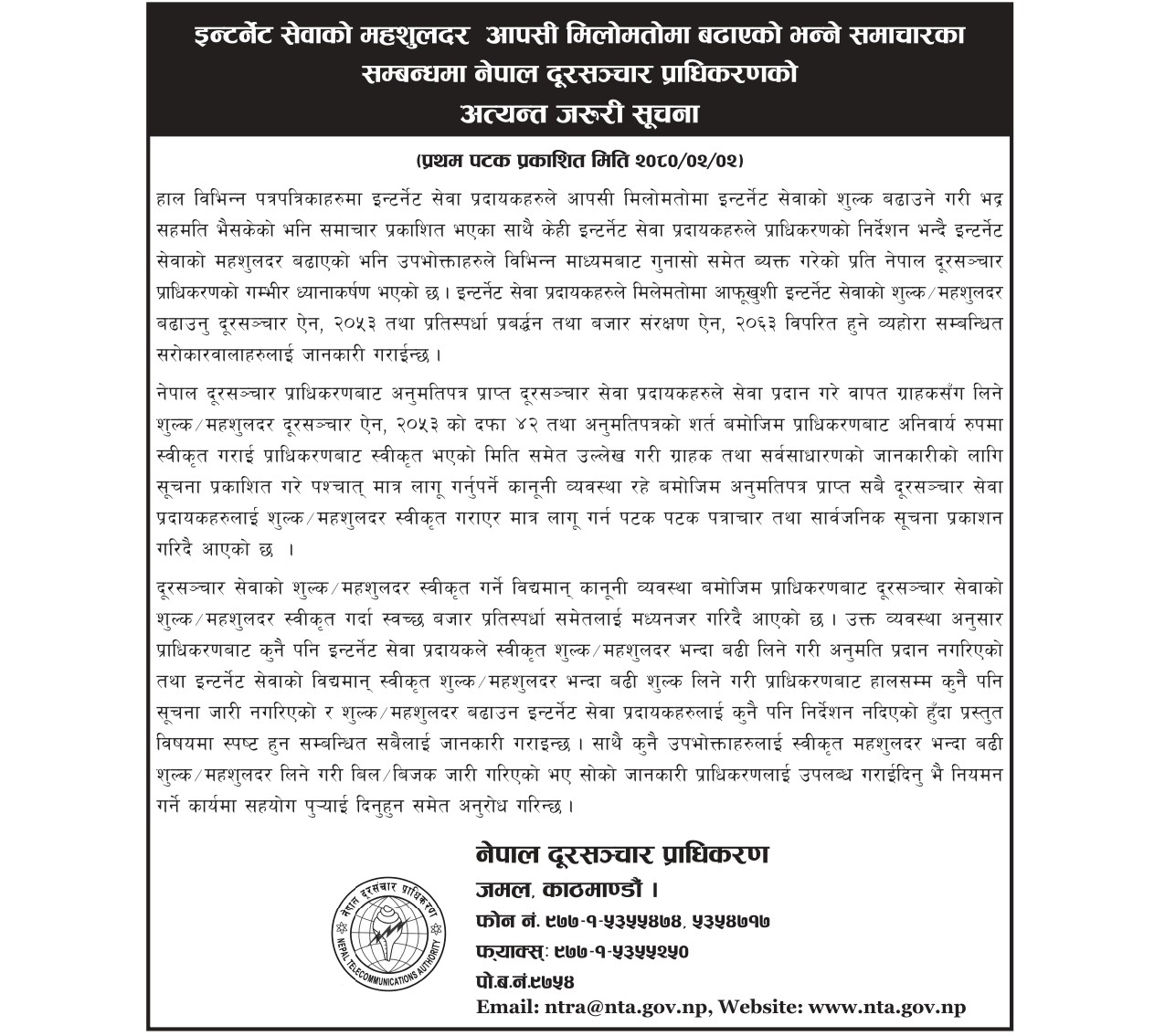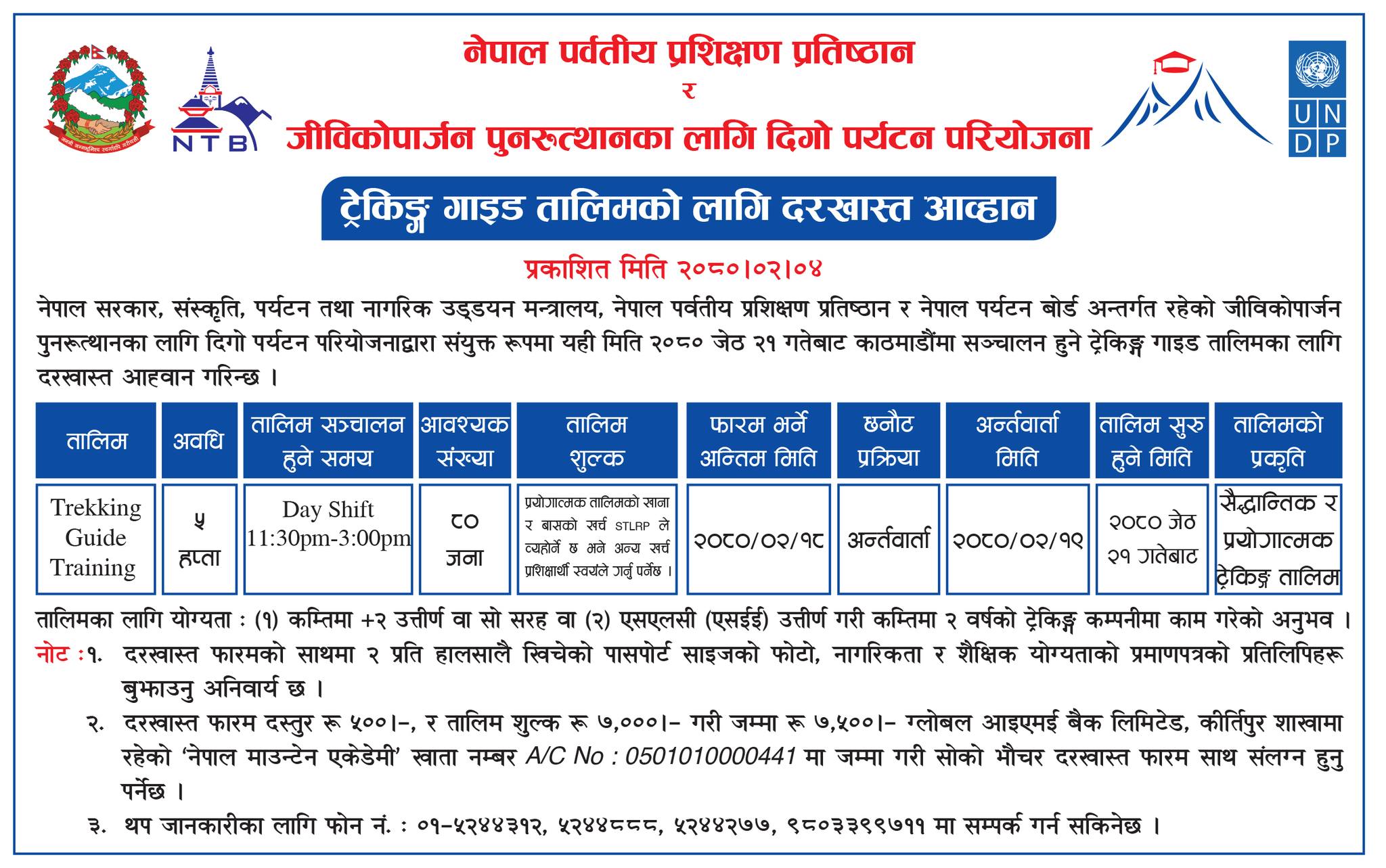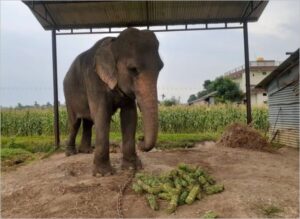Dr Kalyan Roka
Dynamics of Nepal-China Relation
In the past, China considered monarchy as a stable force in Nepal and had close ties with it. After the People’s Movement of 2063/63, the priority of Communist Party of China (CPC) shifted towards the then CPN-Maoist. After the Constituent Assembly election, Maoist Chairman Prachanda was elected as the Prime Minister of Nepal with a comfortable majority. And, right after being elected as the new Prime Minister, Prachanda made his maiden foreign trip to China during the Olympics in 2008. The way he was warmly welcomed in China depicted the close ties between the two communist parties.

sf7df8f}F, @^ c;f]h -/f;;_
lrlgofF /fi6«klt ;L lrglkmª;Fu cfOtaf/ xf]6n ;f]N6Ldf g]kfn sDo’lgi6 kf6L{sf zLif{ g]tfx? e]6jftf{ ug'{x’Fb} . /fi6«klt ;L g]kfnsf] b’O{ lbg] /fhsLo e|d0fsf l;nl;nfdf zlgaf/ sf7df8f}Fdf cfpg’ePsf] xf] . t:jL/ M k|bLk/fh jGt
Back in Nepal, Prachanda’s visit was already causing a storm in a teacup as he had broken a long tradition of Nepalese Prime Ministers making India as their first foreign official visit. On his return, Prime Minister Prachanda clarified that he had visited China for the inauguration of the Beijing Olympics and his first official visit abroad will be India. However, Prachanda’s u-turn in his stance made the CPC realize that the Maoists were not the stable force in Nepal that they were hoping for. After the political and structural changes in the country, the then CPN-UML arise as a prominent force in Nepal. The CPC then had closer ties with the party instead.
The early perspective of CPC was that the structure and mechanism of goverment was important in Nepal, whether it came from the political parties or from the beuraucarcy. Considering them as the key factor in policy making, priority was given to those who were in the government. However, they must have slowly realized that this would not make any noteable impact in the policy making. Since, politics is considered as the ‘mother of all’; the CPC must have apprehended that they need to have close ties with the political parties rather than the bureaucracy, not only in Nepal but also with other countries as well. So they prioritized party to party to relation among all other mechanisms.
During my four-year stay in China, I found that more than one thousand Nepalese delegates visited the country every year. However, such visits did not yield any productive results as expected. Instead of focusing on the lessons learnt from China, dissiminating the knowledge learnt to the people of Nepal and sending our message to people of China, their visit was only limited to an all expense holiday trip for the delegates. The CPC also must have realised this shortcoming.
During the second Belt and Road Initiative (BRI) forum, where Head of the States from more than fourty countries were invited, China showed special respect to President Bidhya Devi Bhandari. It was after that visit, the dimensions in Nepal-China changed. Till then, it had already two decades since any Chinese President had made an official visit to Nepal. Jiang Zemin had been the last Chinese president to visit himalayan nation, making the trip in 1996. President Bhandari’s China visit paved way for President Xi Jinping’s Nepal’s Visit and a new era of Nepal-China relationship.
Need of Party to Party Exchange
After the fall of Soviet Union, there was rise of imperialist force which made America stand as a single pole in the world. However, China enjoyed a stable double digit growth for the last 30 years, especially after Deng Xiaoping’s policy of reform and openess. Although China was considered as a developing nation, considering its huge population, the country had already achieved substancial economic growth a long time ago. The rise of China again turned the world into a two polar system. America and China are poles apart in terms of phylosphy and ideology. America promotes a capitalist philosophy while China believes in a socialist ideology. In terms of economy, America follows capitalist economy while China follows a socialist economy. This started political as well as economic battle between two superpowers leading to the recent episode of trade war. However, what is notable here is that, today the America is more dependent on China than China is on America. China has more dollars reserve in its People’s Bank than America itself. Without loan from China, the US economic growth will come to a standstill. This has led to conflict in economic interest between two nations and rise of Millenium Challenge Corporation and Indo-Pacific Alliance to counter China’s BRI.
The imperialist forces are creating hurdles in the path of China’s prosperity. To move ahead amid these challenges, China realized that it has to have coordial relations between the political parties of other nations. Earlier, China believed on maintaing the relation between the two governments. However, in recent times, this strategy has been changed. Since, China has a one party system, the member of the party also remains in the government. Based on their own experience, they assumed that the government on other nations will also remain stable. However, the case is different in a multi party system. In a multiparty system the political party governs the nation but the government is not stable. Thus, the party to party relation has more advantages over government-to-government relation. It provides access to high-level decision-makers in formal government functions. Moreover, it allows for engagement with influential political actors operating behind the scenes and future political leaders. The International Department of the Communist Party of China (ID-CPC) describes it, many state leaders, before they assume office, had already been China’s friends. After they assume office, they have made active efforts in advancing friendship with China. Through contacts with young political figures, the CPC has laid foundations for future state-to-state relations. (Zhong Lianyan. 2007. International Relations of the Communist Party of China. Beijing: China Intercontinental Press.)
Party to Party Exchange in Nepal
In Nepal, the Nepal Communist Party (NCP) is currently the ruling party with almost two-third majority in the parliament. Also, being a communist party, it is obvious for CPC to want NCP to remain stable force in Nepal. Interestingly, China does not establish party to party relation with a communist party of another nation. In Nepal, it has coordial relation with Nepali Congress, which follows a democratic ideology, as well. To develop the party to party relation, Minister of ID-CPC Central Committee Song Tao visited Nepal and held various discussions regarding Xi Jinping’s thought and coperation regarding BRI initiative as well. This helped to foster party to party relation and people to people relation between two countires. His visit focused on enhancing relation between CPC and NCP, what NCP could learn from CPC and viceversa, exchanging cadres between two schools of thoughts and establishing brotherhood realtion between two parties. During his visit, agreements were made regarding the involment of delegates from China in our party’s school and vice-versa and exchange learnings. The political cadres were preparing syllabus for the exchange, in which I also was involved. However, the agreements in government and party level could not be fully implemented due to the pandemic. The leaders from both sides have said that the agreements will be implemented after the pandemic is over.
This brotherhood relation will be a foundation for Nepal’s stability, optimal use of its resources for development and maximum uses of Chinese resources like finance, technology and educational exchanges. Nepal can benefit from Multidimentional Himalayan connectivity, Kerung-Kathmandu Railway, economic corridor, urbanization of Himalayan range. We need to form a mechanism to implement those agreement and both Nepal and China should be committed towards it.
Role of IDCPC
China’s foreign policy is based on neutrality and five principle of co-existance. Since the begining of 2000s The International Department of the Communist Party of China (ID-CPC) has extensively expanded its global outreach. ID-CPC continues to maintain close ties with both ruling and opposition party. The ID-CPC has built a broad global network with more than 400 parties in over 160 countries. It depicts the importance of ID-CPC’s role in expanding CPC’s party to party relation globally. ID-CPC is proactively influencing international relations. That is why the importance of the ID-CPC’s role in China’s foreign policy-making and global outreach has increased in recent years.
Although the concept of party-to-party relations is not new to China, ID-CPC has played a huge part in increasing the size of its network globally. It has made a huge investment to make this policy relevent in today’s time. The department has a competant human resource which has developed itself into an effective and competant wing to expand the foreign relation. The ID-CPC organises regular meetings with its foreign counterparts, provides training for foreign cadres, and sponsors party schools abroad. It promotes China’s political and economic interests and helps to projects a positive image of China. It shares experiences of China’s party-based regime and economic modernization process. ID-CPC is a key instrument in implementing Xi Jinping’s thought of Socialism with Chinese Charatersitics.














